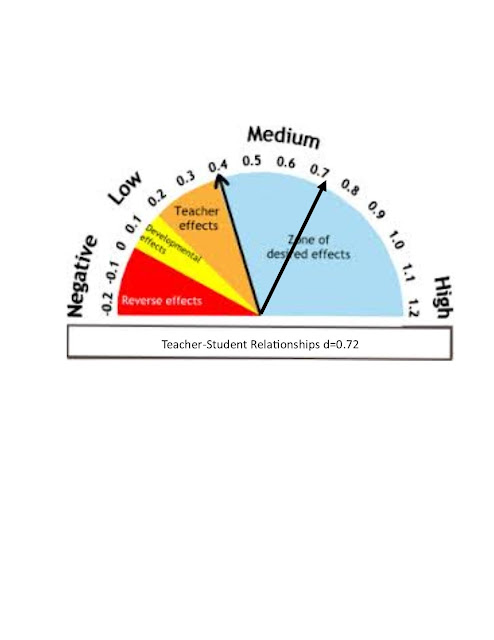In the weekend readings, "Visible Learning For Teachers" there was a passage that should be shared.
'..."We so often make claims about students, their learning styles, their attitudes, their love or not of schooling, their families and backgrounds, and their culture. In so many cases, this discussion is about why we can or cannot have an effect on their learning." ' Hattie J, Visible Learning For Teachers (Routledge 2012), p. 25
The beginning of the passage starting thoughts back to our circle of control. As educators, what is it that can be controlled for our students?
'..." We invent so many ways in which to explain why students cannot learn: it is their learning styles; it is right or left brain strengths or deficits; it is lack of attention; it is their refusal to take their medication; it is their lack of motivation;it is their parents not being supportive; it is because they do not do their work, and so on. It is not that these explanations are wrong (although some are - there is no support for learning styles, for example) or right (parental expectations and encouragement are powerful factors), but the underlying premise of most of these claims is the belief that we, as educators, cannot change the student. It is the belief that is at the root of deficit thinking. The belief that background factors have the strongest influence on learning would be an argument for putting more resources into poverty and home programs rather than into schooling. We must consider ourselves positive change agents for students who come to us - for most, it is compulsory that they come to school and sometimes they come reluctantly, but mostly (at least initially) students are eager to be challenged into learning. My point is that teachers' beliefs and commitments are the greatest influence on student achievement over which we can have some control - and this book outlines these beliefs and commitments." ' Hattie J, Visible Learning For Teachers (Routledge 2012), p. 25
The last sentence was the one that halted the reading for reflection. Our staff at Deep Creek's beliefs and commitments are the greatest influence we can control on student achievement. Remember this is not just a motivational speaker speaking from the heart. This is research based from John Hattie and his team. Dr. Hattie and his team have conducted more research on impactful learning than anyone before and his research shows that our beliefs on a student's achievement is the greatest influence that can be controlled.
At our pre-school PD the current research from John Hattie was mentioned and the measuring tool below was shared.
Hattie's barometer above shows that the average effect size.
The next few barometers will show the influence effect size of items outside of the school control. The first will share that Home Environment scores at 0.57 and next Parental Involvement which scores at 0.51. Both of these effects score slightly over the average effect size of 0.4. After those two take a look at the effect size that Teacher-Student Relationship shows at 0.72. Research shows that relationship with students, which we can control has more effect than the other two.
It would be wonderful to always have motivated, well behaved students from extremely involved families. But we must take all of the students that come off our buses or walk through our front doors and we have to remember that our job is to effect what we can control and follow our mission which is to promote successful leadership in all that we do. Maybe you didn't need this MMM after last week, maybe last week wasn't your week to feel discourage. But, I know in our business we all have times that feel challenging. Just remember to control what we can and that your work in the classroom can have the greatest effect size of all.
Have a great week,
James & Adrienne






No comments:
Post a Comment